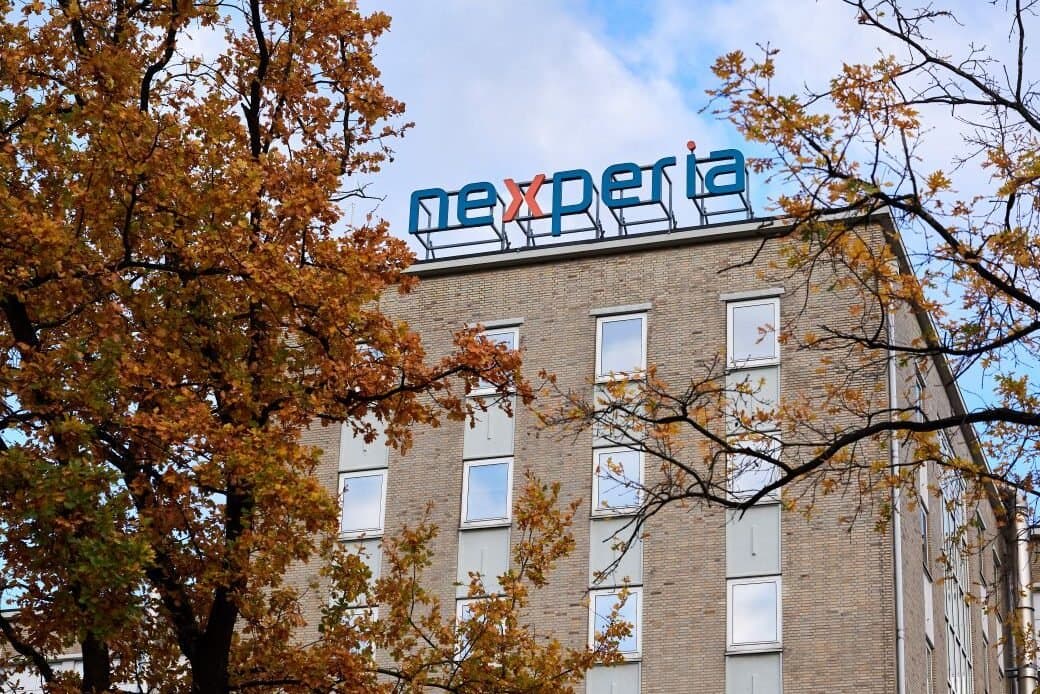Nexperia Welcomes Chip Export Lift Amid Europe’s Supply Chain Crisis
Discover how Nexperia’s export block removal signals a turning point in Europe’s semiconductor supply security, revealing the complex dance of governance, geopolitics, and industry resilience.

Key Takeaways
- Nexperia welcomes lifting of chip export ban after governance crisis
- Dutch intervention used Cold War-era law to secure chip supply
- Chinese export ban threatened global automotive chip availability
- Diplomatic talks eased tensions, restoring supply chain stability
- Europe pushes for stronger chip sovereignty post-crisis

In late 2025, Nexperia, a Dutch semiconductor maker, found itself at the heart of a supply chain storm. The company’s export block, triggered by governance failures and geopolitical tensions, sent shockwaves through Europe’s automotive and tech sectors. Dutch authorities invoked a rarely used Cold War-era law to halt risky management moves, while China retaliated with an export ban on chips made in its facilities.
This tug-of-war exposed Europe’s fragile grip on critical chip supplies, sparking alarm among automakers and policymakers alike. After intense diplomatic negotiations involving the U.S., China, and the Netherlands, the export restrictions were eased, offering a breath of relief to industries worldwide.
This article unpacks the Nexperia saga, revealing how corporate missteps, government intervention, and international diplomacy intertwined to shape Europe’s semiconductor future and why the chip export ban lift matters for global supply security.
Unpacking the Export Block
Imagine a company caught in a governance storm so severe that a government dusts off a Cold War law to step in. That’s exactly what happened to Nexperia in October 2025. Dutch authorities discovered that CEO Zhang Xuezheng had engaged in self-dealing, pushing overpriced deals benefiting his own interests. This wasn’t just a boardroom scandal—it threatened the very flow of chips critical to Europe’s economy.
The Dutch Ministry of Economic Affairs and the Amsterdam Enterprise Chamber took the rare step of suspending Zhang and imposing strict controls on Nexperia’s management. The Goods Availability Act, a relic from 1952, became the legal shield to prevent asset transfers or leadership changes without government approval. This move aimed to secure chip supplies essential for cars and technology.
The drama unfolded like a high-stakes chess game, with the Dutch government prioritizing economic security over corporate autonomy. It was a bold reminder that in the semiconductor world, governance failures ripple far beyond balance sheets, shaking entire industries.
Facing Chinese Retaliation
The plot thickened when China, home to Nexperia’s parent company Wingtech Technology, struck back. In response to Dutch intervention, Chinese authorities slapped an export ban on chips produced by Nexperia’s Chinese operations. This wasn’t just a tit-for-tat—it threatened to choke the supply lines for European and American automakers.
Automakers like Volkswagen voiced alarm, fearing production slowdowns due to chip shortages. The ripple effects were immediate and global. Europe’s dependence on chips linked to Chinese supply chains suddenly looked like a strategic vulnerability.
Dutch intelligence agencies raised red flags about the risks of offshoring critical chip production. The episode exposed a tangled web where corporate governance issues morphed into national security concerns. It was a stark lesson: in the semiconductor arena, business decisions can trigger geopolitical shockwaves.
Navigating Diplomatic Waters
With global industries on edge, diplomatic talks kicked into high gear. The Dutch government, alongside European and U.S. counterparts, engaged China in delicate negotiations. The goal? To ease the export ban and restore the flow of chips vital to countless sectors.
By late October 2025, these efforts bore fruit. The Chinese export restrictions were lifted, a move Nexperia’s Dutch headquarters welcomed with cautious optimism. The company’s focus shifted swiftly to stabilizing supply chains and reassuring customers worldwide.
Yet, beneath the surface, tensions lingered. Nexperia’s Chinese subsidiary hinted at moves toward greater independence, signaling unresolved governance challenges. The diplomatic breakthrough was a milestone, but the path to lasting stability remained complex and fraught.
Reforming Governance for Stability
In the aftermath, governance reforms took center stage. An independent administrator now controls the majority of Wingtech’s voting rights in Nexperia, while interim Dutch management oversees daily operations. This oversight ensures that key decisions—like asset transfers or leadership changes—require explicit government approval.
These measures, backed by the emergency order, aim to safeguard European economic security and guarantee uninterrupted chip availability for at least a year. It’s a clear signal that corporate mismanagement won’t be tolerated when it threatens critical supply chains.
The reforms also highlight a broader shift: Europe is asserting more control over strategic industries, balancing corporate freedom with national interests. For Nexperia, this means walking a tightrope between operational independence and regulatory oversight.
Driving Europe’s Chip Sovereignty
The Nexperia saga has sparked a wider conversation across Europe about semiconductor sovereignty. Policymakers and industry leaders are rallying behind calls for a stronger "Chips Act 2.0," aiming to boost domestic chip design, manufacturing, and packaging capabilities.
This push isn’t just about economics—it’s about resilience. Europe’s reliance on external suppliers, especially those linked to geopolitical rivals, has been laid bare. The crisis underscored how fragile and intertwined global chip supply chains are.
By investing in homegrown technology and tightening governance, Europe hopes to reduce vulnerabilities and secure its digital future. The Nexperia case stands as a vivid example of why chip sovereignty isn’t a luxury—it’s a necessity in a world where tech and geopolitics collide.
Long Story Short
Nexperia’s journey from crisis to cautious optimism underscores the delicate balance between corporate governance and geopolitical forces in today’s tech-driven world. The lifting of the chip export ban is more than a regulatory win—it’s a lifeline for industries dependent on steady semiconductor flows. Yet, the episode leaves lingering questions about cross-border control and the strategic vulnerabilities Europe faces. The Dutch government’s ongoing talks and the appointment of independent oversight signal a new era of vigilance and reform. For Europe, the Nexperia case is a wake-up call to build stronger, homegrown chip capabilities and reduce reliance on external players. The road ahead demands smart policies and resilient supply chains to keep the digital engines running smoothly.